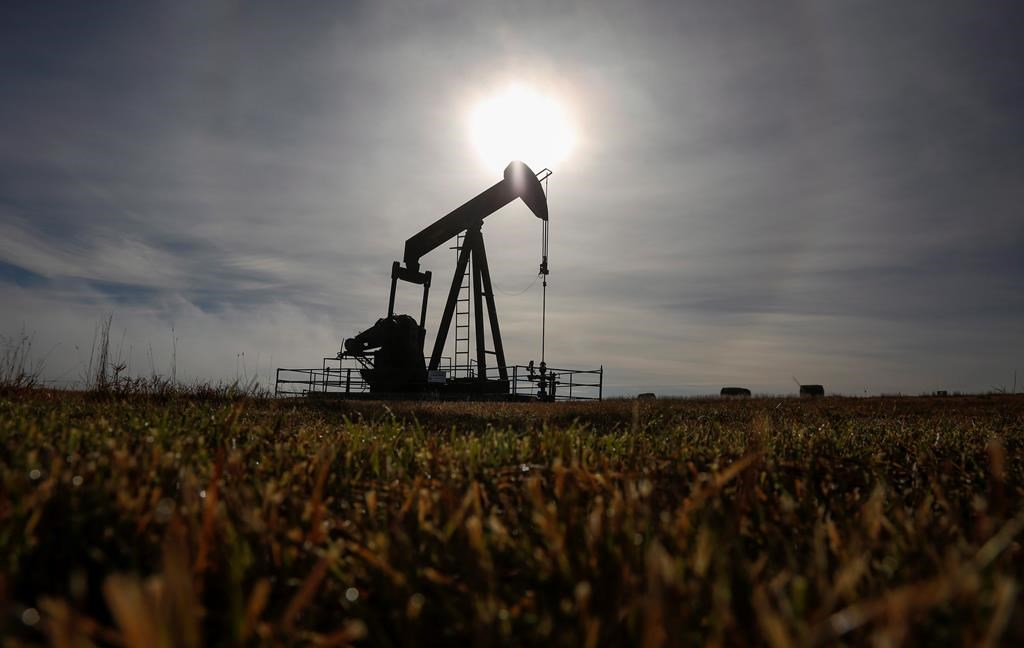Support strong Canadian climate journalism for 2025
Investors in the oil and gas sector are shrugging off federal election results despite predictions that a Liberal minority propped up by the NDP and Greens would result in policies that hurt the industry.
Shares in several Canadian oil and gas companies rose Tuesday, pushing the S&P/TSX Capped Energy Index up 0.4 per cent to 126.85, although it remained almost 28 per cent below levels set a year ago.
Observers said the muted market reaction suggests that the widely predicted election outcome had already been baked into heavily discounted energy stock prices and the slight rebound was simply a correction on confirmation.
"Most of us predicted a Liberal minority government. What happens next is quite uncertain," said Hal Kvisle, chairman of producer ARC Resources Ltd. and a former CEO of pipeline builder TC Energy Corp.
He said he doesn't think the Liberals will cancel or delay the Trans Mountain pipeline expansion or the LNG Canada project on B.C.'s coast, despite opposition to both.
"Most of us in the oilpatch are being quite restrained (in spending) because there's just no access to market and there's no point in investing in big projects in either oil or gas production until we see some things going ahead," he said.
Major Calgary producer Husky Energy Inc. confirmed Tuesday it was laying off an undisclosed number of employees to go along with previously announced reduced spending plans linked to a lack of pipeline access to markets and low investor interest in its shares.
More similar announcements are expected as a slowdown in industry activity continues, said Gary Mar, CEO of the Petroleum Services Association of Canada, citing responses he's getting as the group's members are polled in advance of the 2020 drilling forecast to be unveiled next week.
"My sense is that there's going to more of those (layoffs) coming later this week or imminently in the next couple of weeks," he said, adding he doesn't know which companies might make announcements.
"It is really a function of how much activity there's going to be out there. Money invested in the sector has declined significantly over the last five years."
He wouldn't give details about the PSAC forecast but said it won't include any increase in activity.
The election results could have been worse, said analyst Patrick O'Rourke of AltaCorp Capital.
"I don't think it's a stunning positive but I think maybe what you're seeing in the market response is a sigh of relief from what would have been the worst-case outcome, which would have been a weak Liberal minority propped up by a coalition with the NDP," he said in an interview.
All indications are that the minority government led by Justin Trudeau will be able to operate on an "issue-by-issue" basis, he said, effectively finding allies in other parties to ensure needed legislation moves forward.
The short average lifespan of a minority government and its need to collaborate with other parties to change policy means the oilpatch can likely look forward to less volatility than it's seen over the past four years when the Liberals had a majority, pointed out Jackie Forrest, senior director of research at ARC Energy Research Institute in Calgary.
But Grant Fagerheim, CEO of Whitecap Resources Inc., said the Liberals' need to rely on other parties to get things done makes him worry they won't be able to do what they have promised, including building the Trans Mountain pipeline expansion.
"If the Liberal government could not get it done as a majority government, what do you think they can get done with a minority coalition government?" he asked.
"Therein lies the challenge. So Canada goes into the abyss for a period of time from my perspective."
Earlier this year, the Canadian Association of Petroleum Producers forecast that capital spending in the oil and natural gas industry would fall to $37 billion in 2019 compared with $81 billion in 2014.
In an interview on Tuesday, CAPP president Tim McMillan said the election results would not lead to any upward revisions.
Meanwhile, in an emailed statement, Suncor Energy Inc. CEO Mark Little vowed to work with the government to help find solutions that allow more Canadian products and innovation to go to global markets while also transitioning to a lower carbon world.
With a file from Lauren Krugel in Calgary.
This report by The Canadian Press was first published Oct. 22, 2019.
Companies in this story: (TSX:ARC, TSX:TRP, TSX:WCP, TSX:SU)





Comments